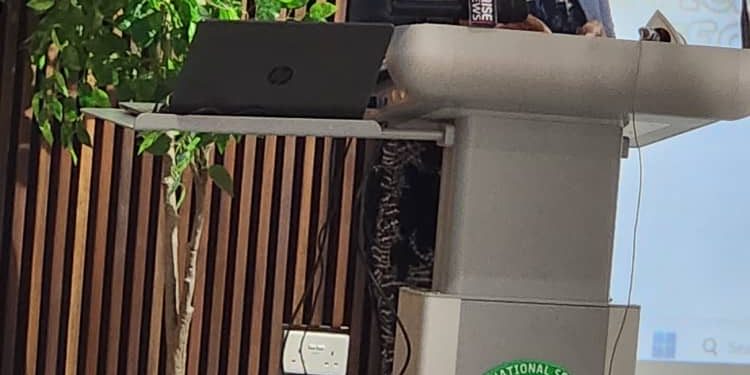By Nkechi Eze
The Nigerian insurance sector has declared its readiness to work hand-in-hand with the National Counter Terrorism Centre (NCTC) to combat violent extremism and safeguard the nation’s stability. This commitment was made by the President of the Professional Insurance Ladies Association (PILA), Mrs. Abimbola Onakomaiya, in a goodwill message delivered on behalf of the insurance industry.
Mrs. Onakomaiya stressed that the insurance sector’s core value is providing “peace of mind” to individuals, businesses, and institutions, enabling them to thrive while focusing on their core competencies. She noted, however, that violent extremism remains a major threat to peace of mind, describing it as “bad for business, whether small or large, national or multinational.”
According to her, violent extremism disrupts operations, discourages investments, and restricts the flow of foreign capital. She explained that for insurers, such disruptions bring both financial and reputational risks, as insurance providers are often exposed when businesses and communities are attacked. “Violent extremist groups frequently target businesses because they fear prosperity. Prosperous individuals and communities are less vulnerable to extremist recruitment,” she remarked.
Citing the Nigerian context, Mrs. Onakomaiya lamented that marketplaces and industrial areas once vibrant centres of commerce and opportunity have in some cases been turned into hubs for spreading extremist propaganda, recruitment, and even storage of arms. She added that traders and companies are frequently extorted, forced to pay illegal taxes, and robbed of their goods, which are then used to sustain violent groups.
Emphasising the need for stronger public-private collaboration, she said the insurance industry must be a key partner in preventing and countering violent extremism. “Without peace and stability, businesses cannot grow. Without growth, there will be no opportunities, and without opportunities, our youth remain vulnerable to exploitation by extremist groups,” she cautioned.
The PILA President further highlighted that the insurance sector covering insurance companies, reinsurance firms, loss adjusters, brokers, and allied financial services such as banks, can play a vital role not only through financial protection, but also through corporate social responsibility initiatives that engage communities, create opportunities, and address grievances.
Assuring the NCTC of the industry’s unwavering support, she said: “The Nigerian insurance industry stands ready to partner with you to unleash the talents of our youth, foster entrepreneurship, and enable them to compete globally. Beyond risk protection, insurers can also drive awareness campaigns on violent extremism and support recovery in conflict-affected areas through innovative risk management and insurance solutions.”
Mrs. Onakomaiya recalled how the insurance industry rose to the occasion during the EndSARS protests of 2020 by paying billions of Naira in claims, a demonstration of resilience and commitment to national stability. “Today, we are reiterating that same readiness, we are more than willing to work hand-in-hand with the NCTC to ensure that terrorism and violent extremism do not continue to undermine our progress,” she affirmed.
Speaking on the broader challenges facing Nigeria including political exclusion, inequality, corruption, injustice, disillusionment with governance, and exploitation of diversity, she maintained that collaborative initiatives between government and the private sector could help provide socio-economic alternatives to violence, strengthen civic engagement, and build resilience at the grassroots.
She outlined specific areas of partnership that the insurance sector is proposing, including promoting the rule of law and human rights in counterterrorism approaches, supporting anti-corruption initiatives, expanding socio-economic alternatives for at-risk communities, strengthening local governments, engaging civil society and faith-based organisations, working with the media to promote national unity, and embedding a culture of peace and risk management in schools and universities.
“Most importantly,” she added, “we must drive insurance awareness and penetration as a tool for national financial stability. Without addressing violent extremism, insurance cannot deliver its full value to businesses and communities.”
On behalf of the Professional Insurance Ladies Association and the entire Nigerian insurance industry, Mrs. Onakomaiya assured the NCTC of full commitment to the partnership, stressing that together both sides could safeguard Nigeria’s future, strengthen resilience, and create a peaceful and prosperous society for all.
















